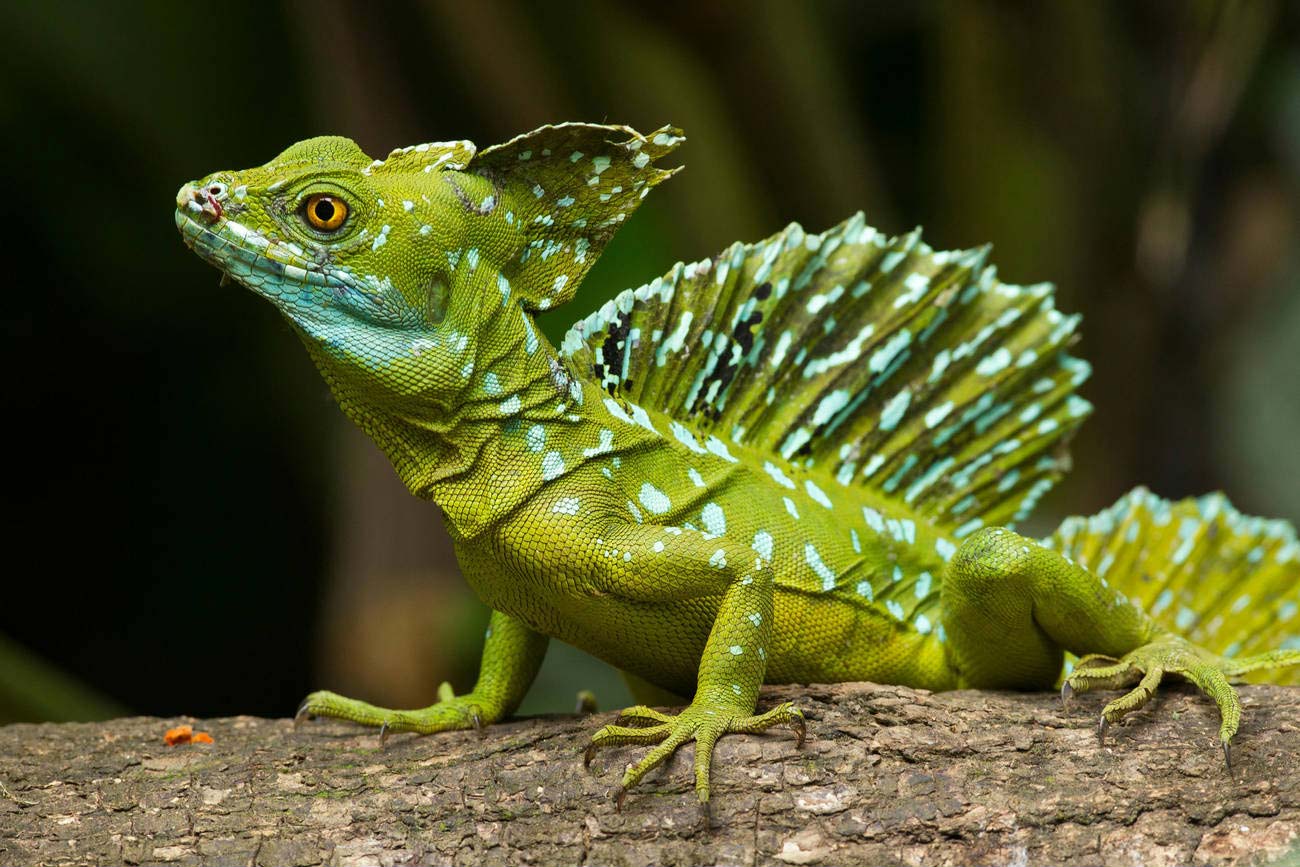Your Cart is Empty
First up: what is a lizard?
Lizards are part of the reptile family. They’re a little like snakes with legs… Hang on, though, many species, such as glass lizards, skinks and slow worms, DON’T have legs!
All that slithers is not a snake… These legless lizards, or fake snakes, have evolved to be limbless as an adaptation to their environment.
There are several other differences between snakes and lizards:
The ancestors of lizards first appeared on Earth over 200 million years ago. They haven’t changed much since then, apart from getting a bit smaller. The name DINOSAUR actually means ‘fearfully great lizard’.
Lizards come in all sorts of colours, shapes and sizes, from giant komodo dragons that grow up to three metres long to dwarf geckos that measure just 1.6cm.
Did you know that there are over 4,675 lizard species?These include iguanas, chameleons, geckos, Gila monsters, monitors and skinks.
Lizards live in every continent apart from Antarctica!

Their eyes can see colours by moonlight. Most other animals, including humans, can’t.
In fact, scientists believe gecko colour vision is 350 times more sensitive to low light than ours.

We smell with our noses – lizards use their tongues.
Lizard tongues aren’t used to enjoy a tasty meal, but to find the meal in the first place.
The tongue catches tiny particles in the air. These particles are then ‘read’ by special sensory cellson the roof of the lizard’s mouth.
Did you know that monitors are the only lizards with forked tongues?

Pick up a lizard by the tail and it will probably come away in your hand! EEK!
But did you know that lizards can regrow their tails? This anti-predator strategy is an extraordinary superpower.
How on Earth do they do it?
Their tails have a ring of cell material designed to ‘break’ more easily.
But the regrowing?
Certain genes contained in the lizards’ tail stumps are super-active.They are amazing at wound healing, cell growthand tissue regeneration(regrowth). Every cellcontains thousands of genesthat carry information.
Some lizards may even return later to eat their tailin order to recover some of its nutrients. (Say WHAAT?!)
A lizard’s dry, scaly skin doesn’t grow with its body;it sheds its old skin to make way for new growth underneath.
EXCEPT the alligator lizard,which sheds its skin in one piece, just like a snake.
Lizard scales differ,depending on their habitat. Skinks have smooth scales, so mud doesn’t cling to them. Other lizards have bony platesunder their scales for extra protection.

HOW do they do it?With fat, sticky toe-pads!
But how do they ‘unstick’ so easily?
Despite 200 years of research, scientists are still not 100% sure. But gecko feet are covered in hundreds of thousands of hairs, and some of those hairs are covered in even tinier brush-like bristles.
Horned lizardsshoot vile-tasting blood from their eyes when threatened.

Armadillo lizards have spiky scales and can roll up into a ball to protect themselves.

Alligator lizards bite, struggle and squirt foul-smelling poop to escape their enemies.

Green basilisks can run on water. They are able to make a 1.5-metres-per-second sprintacross the surface if alarmed!

Written by Gabby Dawnay
Comments will be approved before showing up.

January’s JAWsome Creatures competition brought some of the most imaginative and fearsome designs we've ever seen! From predators with sabre-like teeth to extraordinary beaks with unique feeding tricks, your entries were truly jaw-dropping. A huge thank you to everyone who took part – we loved seeing your wild and wonderful creations!
The Wildlife Photographer of the Year competition, produced by the Natural History Museum, never fails to amaze, and 2024 was no exception. Thousands of incredible images were submitted, but only a few made it to the People’s Choice Award.
We were truly amazed by the imagination displayed in our Dive and Discover competition from the Diverse Divers issue! From exciting underwater adventures to unique sea creature creations, your entries showcased the wonders of the deep in such fun and vibrant ways. A huge thank you to everyone who pa...



Hannah Cader
September 29, 2020
Hi. Would you be interested in covering the recent Mauritian oil spill and the danger to endangered and endemic lizards. Rescue appeal is being spearheaded by the Durrell Conservation Trust in Jersey. If so pls contact me. Thanks.